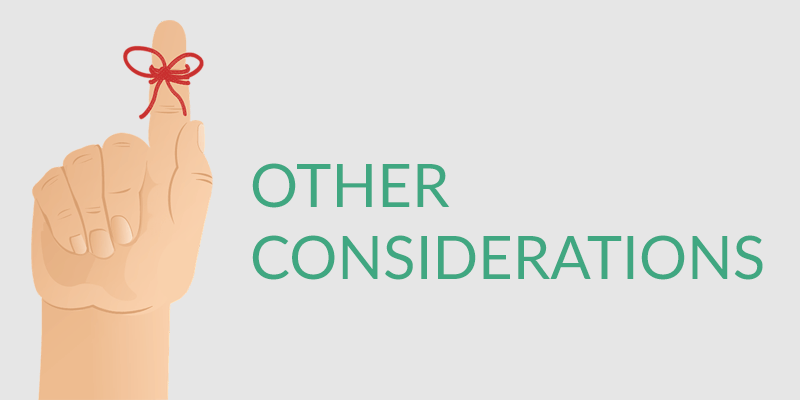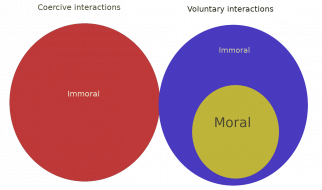As an estates professional, I can?t tell you how many times I receive variations of the same inquiry: why put your house in a trust? / why would you put your house in a trust? / How to transfer property into a trust? Therefore, with the combined weight of my experience I hope to answer these questions as best as I can.

The Short Answer:
As a very, VERY general rule of thumb, if you expect to pass on assets of significant value to heirs or beneficiaries and/or can foresee confusion and conflict arising during the probate process; putting your assets in a trust can provide with some reasonable peace of mind. However, I advise that you should always consult a estate professional / financial planner to properly assess your situation.
What Is A Trust? And What Kind Do I Need?
A trust is a legal vehicle whose main purpose is often to hold and enable the easy management of assets after the creator of the trust has died (or become mentally incapacitated?.more on that later). Generally speaking there are two kinds of trust: a revocable trust and an irrevocable trust. However, depending on where you live and your income bracket different subcategories of these trusts may become available (even preferential to you). But for now let?s stick with these basic definitions:
Revocable Trust: Also called a living trust, a revocable trust is a trust whereby the provisions of the trust can be cancelled or altered dependent on the grantor. (The grantor is the person who creates the trust.) Additionally, only after the death of the grantor will property in the trust be transferred to beneficiaries. For instance, in a revocable trust a grantor can leave a beach house to a beneficiary (let?s say their son). However, while the grantor is still alive they can change the beneficiary or any other condition in the trust.
Irrevocable Trust: Is a kind of trust where the provisions of the trust cannot be altered or canceled by the grantor. (Or at least not without the additional permission of the beneficiary/beneficiaries named by the grantor). So going back to our previous example. In this case if the grantor left the beach house to their son, they could not change this stipulation without going through some rather extraordinary steps.
Other Trust Variations:
Medicaid Asset Protection Trust: type of trust enables someone who would otherwise be ineligible for Medicaid to become Medicaid eligible and receive the care they require be at home or in a nursing home. Assets in this type of trust are no longer considered owned by the Medicaid applicant.
Qualified Personal Residence Trust: usually used for properties that are worth a significant amount of money; this kind of trust allows a homeowner to give their property to beneficiaries at a fraction of the property?s value. It also reduces the burden of estate tax.

Advantages of Putting Property In a Trust:
Putting property in trust has a number of advantages over other legal vehicles such as wills and is a far better choice than no estate planning at all. Let?s review the myriad benefits below:
Trusts Are Private: When you set up a will, the will is kept private until the person the will belongs to dies. Then, in most cases the will goes through probate process and it eventually filed as a public record. However, anything locked away in a trust is not publicly accessible.
Avoids Most of the Costs Associated with Probate: Putting your home in trust can help you avoid probate. Probate is the legal process by which a deceased person?s estate is properly distributed to heirs and beneficiaries. However, probate can be very expensive. Some broad estimates state that between legal/court fees and travel costs probate can eat up anywhere between 3% to 15% of an estate. This is not to mention that probate can often involve multiple hearings (sometime across state lines) that can eat up your time.
Better Ensures That Assets Cannot Fall Into The Wrong Hands: Along with their speed and ease of use; trusts have added protections that help ensure that assets go to intended beneficiaries and not others (i.e. ex-spouses, etc).
Avoids Conservatorship: A conservatorship is a legal concept whereby somebody (a protector or conservator) is appointed by a judge to manage the financial life of someone who (usually due to mental or physical limitations) cannot manage their own affairs. When you set up a trust, the creator (grantor) of the trust is also tasked with appointing a trustee; someone who can properly execute the stipulations of the trust if the grantor is unable to do so.
An Irrevocable Trust May Save You Money Come Tax TIme: Among the benefits of putting house in a trust, assets in an irrevocable trust are not included in your estate?s value. Therefore, an irrevocable trust can save you a lot of money at tax time.

Disadvantages of Putting Property In a Trust:
The disadvantages of putting property in trust are few but worth noting. They generally pertain to the initial cost and time it takes to prepare this legal framework.
Preparation, Paperwork, Paperwork and More Paperwork: Your property and all other valuable assets that you wish to put in the trust must be ?titled? into the trust and that can involve tons of paperwork. Also, everything in the trust should be prepared properly (according to your best wishes). This will likely mean long sessions with your attorney, financial planner, etc.
Revocable (Living Trusts) Do Not Protect From Creditors or Taxes: As one of the key features of a revocable trust is the ability to change parts of the trust prior to the grantor?s death; upon the grantor?s death the trust is still considered part of grantor?s taxable estate. The aforementioned feature also better allows for the property in the trust to be seized by creditors.
Can Cause Troubles With Refinancing: Though it is becoming less and less of a problem, when you are trying to refinance a mortgage some (less enlightened) lenders may require that you take a property?s title out of a trust so that the new mortgage can be recorded in the public record. You would then have to put property title back in the trust at a later date. However, this is gradually changing throughout the industry.

-When finally considering ?How to put my home in a trust? or ?how to transfer property into a trust? remember to always consult/work with an estates attorney. A tax professional and financial planner can also give helpful advice in this regard.
-To anyone trying to transfer their shares in a coop to a beneficiary/heir by means of a trust. In most cases the beneficiary will still have to get board approval live in or even sublet the unit. (And many coop boards would prefer that you sell your shares to a new owner)
-While property / assets in an irrevocable trust are better protected from creditors than in a revocable trust; creditors and other interested parties can still sue the trust or try other legal maneuvers. And courts have been known to dissolve trusts based on premise that they were formed to defraud creditors.


